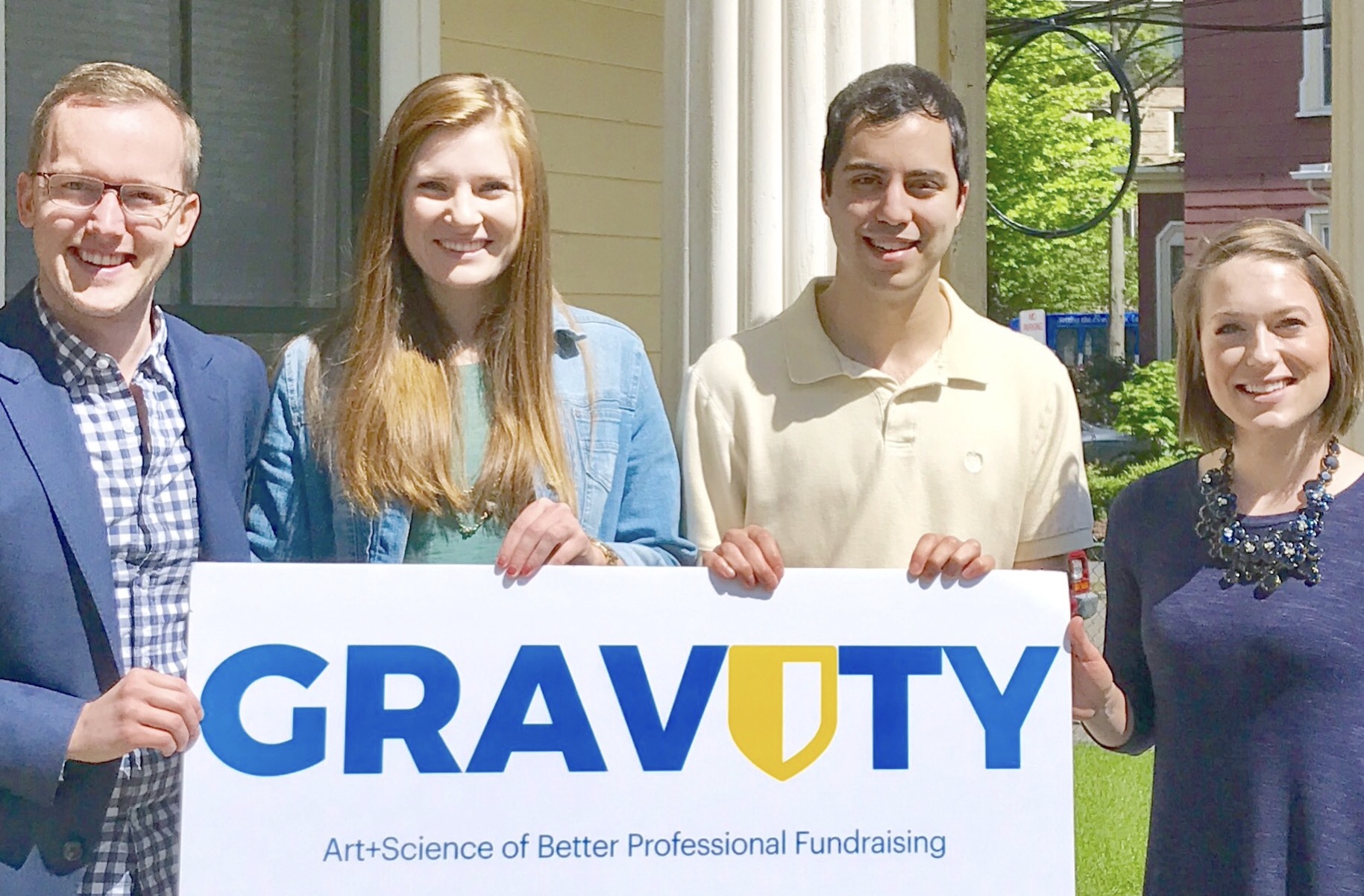Rich Palmer is President and CTO of Gravyty, a tech company doing artificial intelligence & machine learning to help nonprofits raise more money intelligently.
What inspired you to launch Gravyty?
I spent four years on Wall Street building corporate analytics systems. While lucrative, I felt the work was stealing my soul. I eventually quit and launched two companies. The first, an Etsy for food type company that I bootstrapped failed. For the second, a business intelligence company we raised $120 million.
After recovering from a brain aneurysm in 2013, I knew I had to go back to my entrepreneurial roots and so I decided to go to Babson College. The reason Gravyty exists is that Babson is the best entrepreneurial school so you are self-selecting into a pool of people who care about entrepreneurship. It’s where I met my co-founder, Adam Martel. As the friendship formed we decided to work together.
Adam worked in development and would show me things they used like spreadsheets, sticky notes to help bring in donations. And although they were bringing in $20 Million using a labor-intensive method we wondered how much more it could be if we made the process better. This led us to build the first prototype and start a tech software service company. We were also very interested in social change and doing things that matter so that became central to our business.
What are the biggest challenges you’ve faced so far?
Finding and maintaining balance. I have a lot of people telling me that you don’t need balance, that in a startup you should be stressed. Well, I think that’s nonsense. I make sure to have a good way to start and end the day to find balance.
As a startup one of the hardest things to do is go from 0 to 1, going from nothing to something. We learned that you can’t just sell, you should educate. Adam and I got that wrong at the beginning. We were asking people to buy our stuff. When all we had to do was listen and observe what was happening in nonprofit organizations and only talk when we could answer a question.
How did you get funded or what creative strategies did you use to execute on minimal cash flow?
Just like I’m always looking to derisk the business, investors are also looking to derisk their business. Investors rely a lot on us to understand what we’re doing.
At first, I asked the father of a wealthy friend for $500K. He laughed at me and told me to go find a customer. That’s when we realized we had it wrong again. We thought that because we had the product and strong financials people would fund us, but they wanted us to have a customer first. The hack is for people find a customer that will go to bat for you.
After getting the first few customers we got the first check of $25K and ended up raising $500K in the first round. The $25K signaled to other investors that something was happening with us. That’s when we found a lead investor. I believe it’s very important to find the right person because your lead investor often takes a board seat and it’s like you’re married to them.
Another hack is to think of your fellow students as potential investors. Five of our investors are Babson students, friends of mine.
Some of our employees took pay cuts to get here and that is due to our leadership style. People who work with us may take a step down un terms of pay but take 10 steps up in potential. We also took on volunteer roles, like volunteering here at the Newton Innovation Center in exchange for office space. We do a lot with very little.
What’s the most exciting thing on the horizon for Gravyty?
The most exciting thing for us is the realization that we built a vision, but the only way to articulate the vision is to build the thing people see which is our user interface. We’ll continue to make improvements to it, but we’re really going to double down on what’s happening behind the scenes, and that is artificial intelligence and machine learning.
We’re working on using Twitter data to figure out if someone is motivated by hope or anxiety. This would help fundraisers know before they get to a person what motivates a potential donor and be able to develop a more meaningful relationship with them.
We just released a prototype of a virtual fundraiser in connection with Amazon Alexa to help fundraisers prioritize donors and be more effective.
What three lessons have you learned about being an entrepreneur?
Knowing if you’re solving a first-person problem or a third person problem is important. I’m an outsider to this industry. I would not have been able to start this company without Adam who is an insider.
Riding a flat roller coaster. Everyone says startups are like rollercoasters and that you should just go for the ride. I don’t believe in that. We have closed ivy league schools on the same day we have gotten destroyed by something. In other words, don’t let the highs warp your perspective, and don’t let the lows disrupt you.
That’s why we say ride a flat roller coast, pick a direction, whether it’s right or wrong, and go as fast as possible, as steady as possible in that direction.
Entrepreneurship and being in a startup is not a job it’s a lifestyle. It’s a way of approaching life that is different than what everybody else is doing.
How do you define success?
Success is an everyday phenomenon: we need to win every day. This notion guides how we spend each day and our lives as entrepreneurs. We’re also careful to not let vanity metrics be a measure of success.
What’s one tool or network that has been helpful to you recently?
Leading by Sir Alex Ferguson who was the manager of Manchester United –he talks about business, motivation, and competition through the lens of managing a soccer team.
The ecosystems have been extremely helpful –Babson, MassChallenge, the Pledge 1% at The Boston Foundation and the Launch Pad venture group.
What words of advice do you have for other entrepreneurs?
Make sure you’re building the correct network. Limit your exposure to high-quality people who are either two steps ahead of you or have seen a lot of companies like yours, and who are not jaded or cynical.
Part of that is to not just go for marquee names. Most of our investors are unsung heroes, they are more willing to engage and give us time. If you get to those people always ask for something, give them a purpose. When you’re meeting with people listen, shut up, and build the relationship.

Left to right: Rich Palmer, Camille Oemcke, Jonathan Michaels, and Lindsey Athanasiou.
From the series
Startup Warriors: Entrepreneurs’ Stories of Ingenuity, Grit & Resilience
